When Amporn was diagnosed with colon cancer after experiencing abdominal pain, bloating, and difficulty with bowel movements, she began a long and difficult health battle — one that would last over four years.
Severe Condition, No Cure in Sight
Amporn is from Thailand. Four years ago, she underwent a right hemicolectomy and a right abdominal wall ileostomy. After surgery, she also received multiple rounds of chemotherapy. However, the tumor recurred and began growing near her navel — suspected to be a metastatic lesion.
Despite chemotherapy, radiation, and continued changes in treatment, the navel tumor kept growing, even bleeding and emitting an unpleasant odor. Local doctors told her that available drugs came with high risks and only a 5% efficacy rate. Amporn became very anxious and began to feel hopeless.
“Eventually, I started looking into treatment options elsewhere.”
Through social media, she discovered Guangzhou Fuda Cancer Hospital and its internationally recognized cryoablation technology — a potential lifeline she described as a chance to "escape death."
Multidisciplinary Approach Leads to Tumor Detachment
In November 2024, Amporn came to Fuda’s Medical Oncology Department II. However, she was not eligible for cryoablation. Diagnostic results showed multiple metastatic tumors in her umbilical region, greater omentum, and mesentery. The navel tumor had broken through the skin, protruding outside the body, measuring approximately 9 cm x 8 cm, and was continuously bleeding and oozing.
“The doctors explained that the tumor had grown from the inside out, and cryoablation might not prevent recurrence. Plus, the procedure carried a risk of intestinal leakage.”
Therefore, the medical team opted for arterial infusion chemotherapy combined with embolization and immunotherapy. After two sessions, although the tumor remained, the bleeding had significantly improved.
“When I first arrived, the bleeding was so bad that it flowed onto the floor.”
However, a follow-up a month later revealed tumor enlargement. The doctors decided to revise the treatment plan, switching to targeted therapy combined with immunotherapy. To Amporn’s surprise, the tumor shrank to 3 cm after the first session — and after the second session, the tumor on her navel fell off.
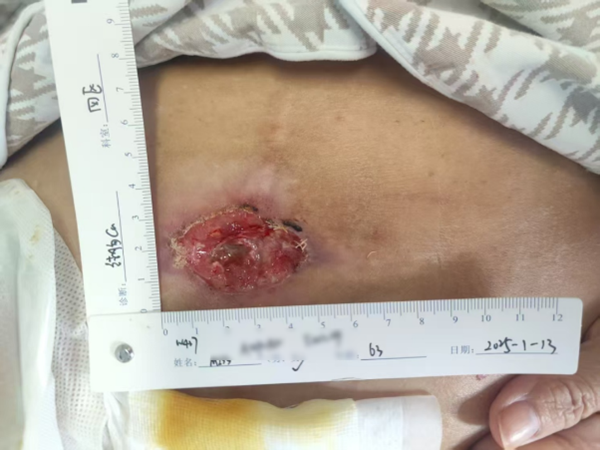
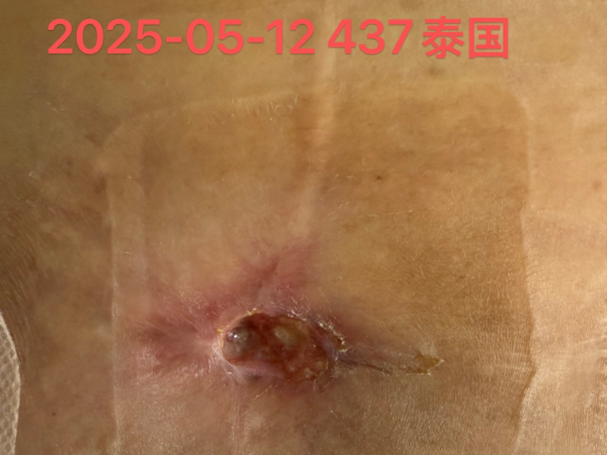
Amporn experienced some side effects during treatment — headaches, vomiting, and peeling skin on her feet — but none significantly disrupted her daily life. Imaging showed her condition was stably controlled.
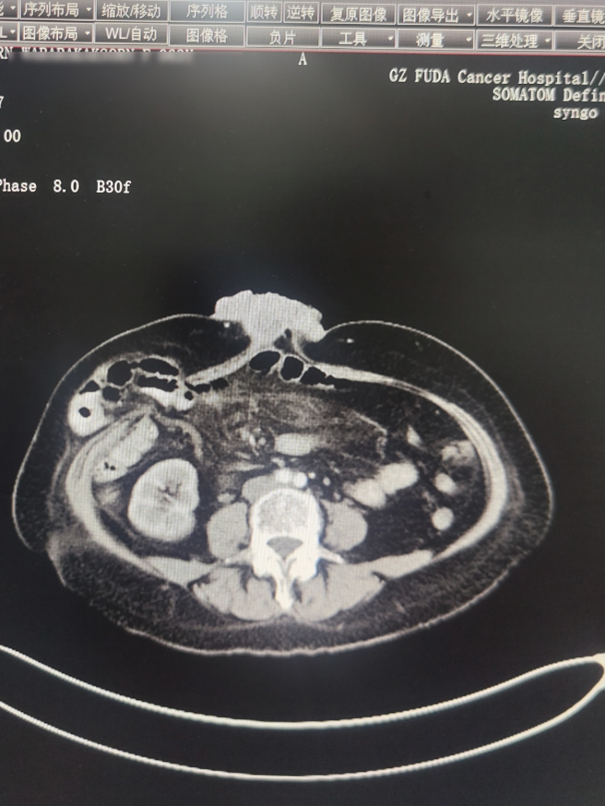
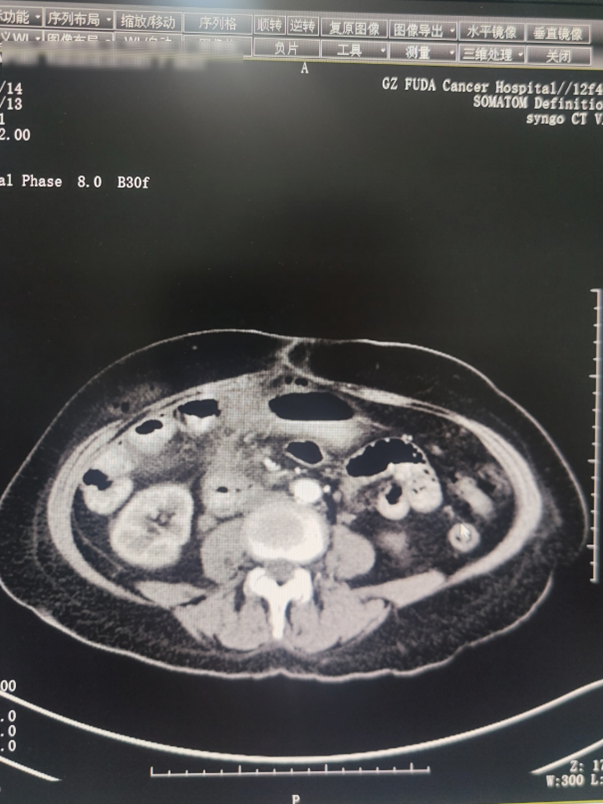
△ Left: CT scan from November 2024 | Right: CT scan from May 2025
A New Life Begins
Amporn shared that Fuda’s doctors truly care about their patients, and the nursing services are outstanding — more thoughtful and humane than what she had experienced in Thailand. She was especially moved when, on the day of her discharge (also her birthday), the Medical Oncology Department II, along with other departments, surprised her with a birthday cake and gifts.
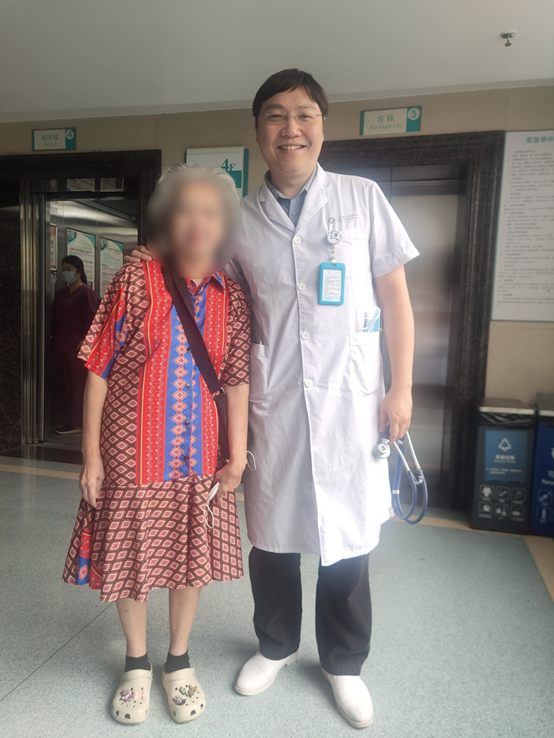
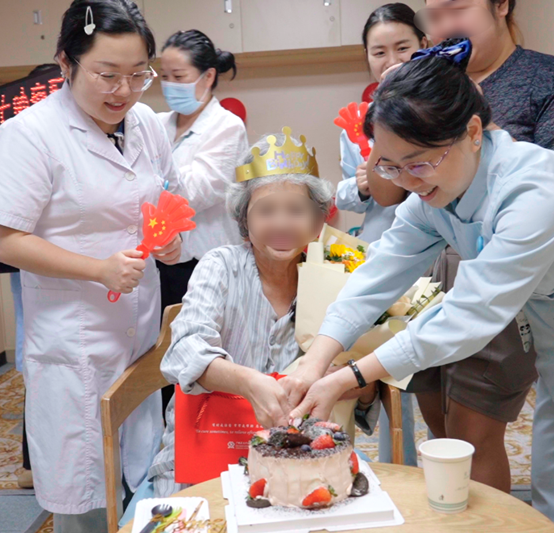
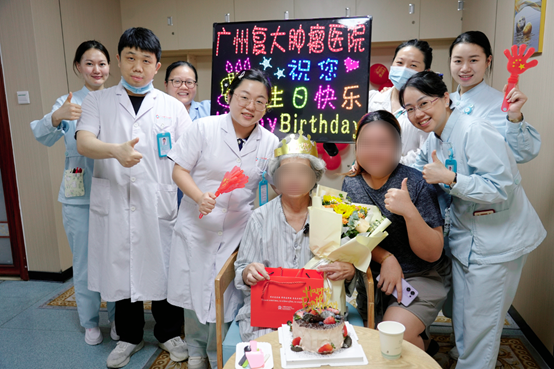
When everyone sang “Happy Birthday” and gathered around to wish her well, Amporn felt warmth and deep gratitude.
She sincerely thanked the medical team for their care and love.
“With their help, I didn’t have to spend what I thought would be my last birthday with a tumor — I’m returning home with a new lease on life. Here, doctors don’t just beat cancer with technology — they also heal fear with heart.”
Colorectal Cancer Awareness
Early symptoms of colon cancer are often mistaken for gastrointestinal issues such as indigestion, inflammation, or dysentery. Be alert and seek medical attention if you experience:
Changes in bowel habits or stool appearance: constipation, diarrhea, increased frequency, or mucus/pus/blood in the stool.
Abdominal pain: bloating, discomfort, or persistent dull pain. Intestinal obstruction may cause cramping or severe pain.
Abdominal mass: a firm lump in the abdomen, likely the tumor itself.
Bowel obstruction: in mid to late stages, symptoms may include diarrhea, constipation, bloating, and cramping.
Systemic symptoms: fever, fatigue, weight loss, and anemia from tumor ulceration or chronic bleeding. In late stages, edema, ascites, jaundice, and hepatomegaly may occur.
In advanced metastatic cases, symptoms can include liver pain, bone pain, shortness of breath, or coughing.
In addition to regular screening for high-risk individuals, lifestyle changes such as quitting smoking, maintaining a healthy weight, reducing red and processed meat intake, and increasing dietary fiber can also help lower the risk of developing colorectal cancer.

